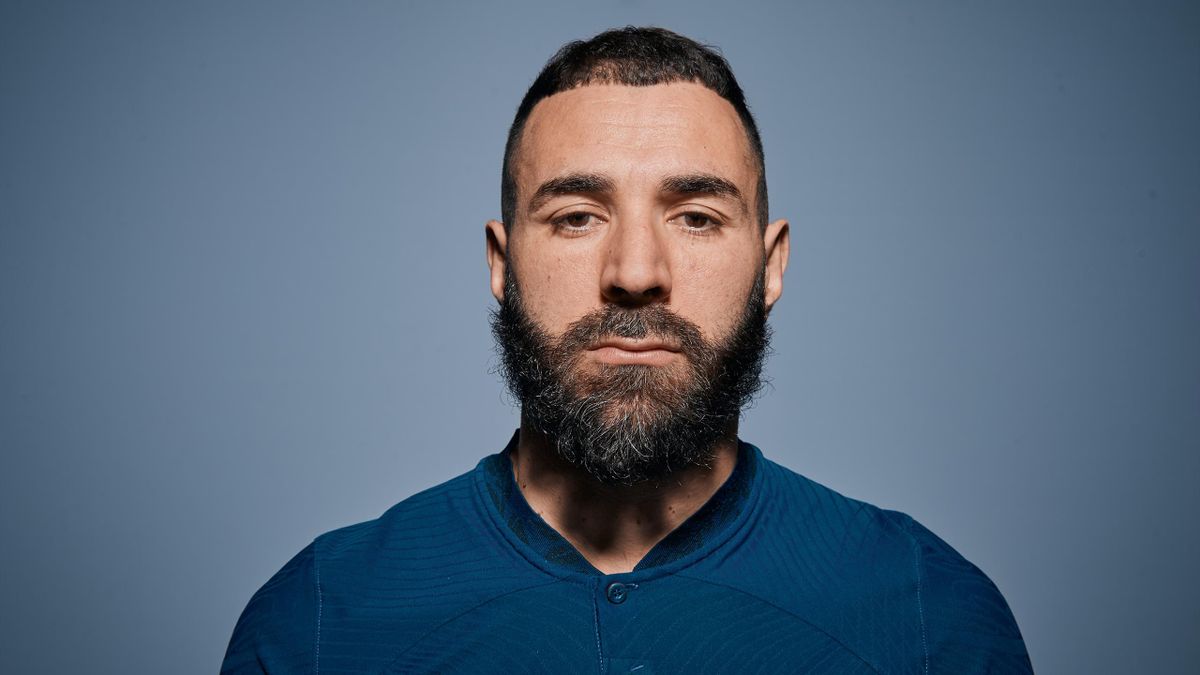TUESDAY’S BIG STORIES
AU REVOIR KARIM
For a man who didn’t play a single minute at the World Cup, Karim Benzema has had a rollercoaster of a month. Injured on the eve of the tournament, he first had to watch his replacement, Olivier Giroud, be hailed as the key to unlocking Kylian Mbappé. Are France better without Benzema, we all asked. Better balanced, better equipped to defend their title. And didn’t we all feel clever, embracing the counter-intuitive like that.
Then we all watched Giroud get dragged off before half-time in the final.
‘What if Benzema had been fit?’ is an interesting question, and one that may nag at French football for some time to come. Certainly, and thinking just about the final, it’s hard to imagine him being as remarkably peripheral as Giroud. Benzema is a more complete footballer, much better placed to drop deep and ask his midfield some questions. Like, ‘What the hell is going on?’ Or, ‘Has anybody seen Antoine Griezmann? Short lad, grey hair. He was supposed to be here.’
And maybe ‘What if Benzema was secretly fit but Deschamps had sent him home?’ is going to get big on the internet, because games as ridiculous as that one produce conspiracies the way dark, damp corners produce mushrooms. Was he even there? Do you remember seeing Benzema on the bench? Or in any of the crowd shots? We don’t. Possibly because our brain was leaking out of our ears, but that’s not the point. France didn’t have a major internal row during the tournament. Perhaps afterwards is a good moment.
Or perhaps not, since it’s a moot point now. Benzema announced his international retirement yesterday. A picture of him in his France kit, captioned “I made the effort and the mistakes it took to be where I am today and I’m proud of it! I have written my story and ours is ending.” Plus, you know, he turned 35 yesterday.
If this is indeed the end of his international career, it’s one of the oddest we can think of. He’s got 97 caps and 37 goals, which puts him 10th and fifth on France’s all-time men’s lists, despite not playing for almost six years; he’s been one of the best strikers in the world in a period when France have won the World Cup, and the only winner’s medal he’s got came from the 2021 Nations League. We don’t have space here to get into the rights and wrongs of his long exile, but it certainly cost him the chance to turn some excellent numbers into some extraordinary ones.
But. But, but, but. We may just be falling prey to another strand of conspiratorial thinking, but this feels like a door being left slightly ajar. We’re guessing there’s no way back for Benzema if Deschamps continues in post, but if the anticipated handover to Zinedine Zidane comes? A fresh start for everyone! Clean slates all round. And what’s 35, these days, between old friends? Giroud is 36, and he was the perfect solution right up until the moment he absolutely wasn’t. At the very least, having not won all those caps when he could have done, there’d be a nice symmetry if Benzema picked up a few more after he was done.
THE HIT PARADE
We love the FIFA rankings. We love them because they are one of the more reliable sources of emergent comedy in the game: whenever anything spectacular happens, the rankings will be along shortly afterwards to make you smile. We imagine a shy, earnest young man, coughing politely, asking you to put down your flare and have a look at this clipboard. It has tables. It has graphs. Acronyms are coming.
So! Ahead of the official publication this week, we’d like to offer our congratulations to Brazil, who are still officially the best team in the world. That ought to cheer Neymar up, right? Right? He’s not answering our calls. Probably too busy celebrating.
The beauty of the rankings is that they function in a manner entirely at odds with the actual sport they purport to measure. International football is a thing of cycles, a churn of relatively low stakes games and then, every couple of years, a sudden rush of the most ludicrously important games that anybody’s ever played. The rankings, meanwhile, take a long view. Brazil are better than Argentina because they have turned in strong results through qualifying and in the early stages of tournaments, and because Argentina are coming up from a lower position. But it’s Argentina that have the Copa América and the World Cup. It’s Argentina that is two days into a four-year party.
There are a few more intuitive outcomes from the World Cup. Morocco are up to 11th, England are spinning their wheels in fifth, Spain have dropped to 10th and Germany are all the way down in 14th. Wales have dropped a whole nine places, and Denmark eight, which in both cases feels about right. And no rankings chat would be complete without a shout for Belgium, who are [drum roll] still the fourth best team in the world. Bobby Martinez, you’re a genius.
IN OTHER NEWS
Three o’clock in the morning in Argentina, and the open-top bus parade has already begun. None of these people have been to bed. None of these people are going to bed.
RETRO CORNER
Of all the various times that Argentina should have won the World Cup, between Maradona in 1986 and Messi in 2022, their misadventure in 2002 may be the oddest of the lot. South American qualification is, traditionally, something between a slog and a nightmare, and yet Argentina steamrollered the whole affair. They played 18 games, won 13 of them, and lost just once, finishing 12 points ahead of Ecuador and 13 ahead of Brazil. They scored 42 goals and conceded just 15. They were brilliant. Here they are beating Colombia. Yes, that is Marcelo Bielsa.
And then they got to the World Cup, lost to England, couldn’t beat Sweden, and didn’t get out of the group. Meanwhile Brazil romped to the trophy. It’s a cruel business.
HAT TIP
But where Marcelo Bielsa failed, Lionel Scaloni succeeded. Here’s Tim Vickery over at ESPN, looking at the other Lionel, the coach that has been improvising, tweaking, and gambling his way through the tournament. After they beat Italy in the Finalissima back in June, everybody knew they had a chance. And everybody knew that Giovani Lo Celso and Lautaro Martínez were going to be absolutely crucial.
“In tournament football, once the action gets underway, it is like time speeds up — no one remembers warm-up friendlies or qualifying matches. … Without undue panic, [Scaloni] reacted to the shock opening day defeat to Saudi Arabia with a sequence of changes that have been largely wise and successful. A vital one was the decision to replace Lautaro Martinez up front with Julian Alvarez. Messi was going to be more of a sporadic figure than Scaloni had planned, and so the extra mobility of Alvarez was a necessity. The entry of 21-year-old Enzo Fernandez into the midfield was a masterstroke.”
OTHER HAT TIP
A note here for one of the World Cup’s unsung heroes: whoever is in charge of getting guest columnists over at The Athletic. Juanma Lillo was great fun a couple of weeks ago, and now here’s Leeds manager Jesse Marsch explaining his grand unified theory of emotion, trust, and Argentinian excellence.
“Football means so much to the community, giving everyone an opportunity to find something else in life. So yeah, they have talent and of course, Argentina winning the World Cup final yesterday will be framed around Lionel Messi’s brilliance, but what you saw in Qatar was a working-person’s team grinding it out in whatever way they had to, solely focused on the prize. They’re a team that Argentinians will be proud of because of that hard-working, grassroots attitude.”
Although if we’re being honest, the real revelation comes when Marsch reveals how he planned to watch the final. Get some mates over? Have a little viewing party, get the fromage and the Malbec flowing? No. “As it started I was going through video clips of the friendly we at Leeds United had against Real Sociedad on Friday, but by half-time, I’d stopped and put my computer away.”
Come on, man. Come on.














